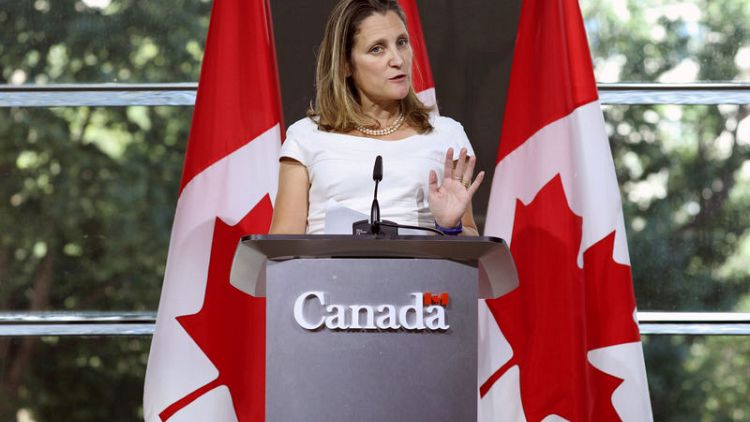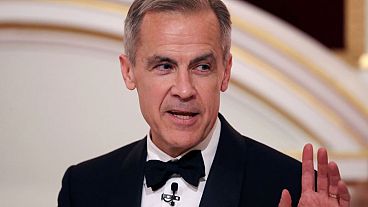By Jason Lange and David Ljunggren
WASHINGTON/OTTAWA (Reuters) - Canada insisted there was still room to salvage the North American Free Trade Agreement after talks on Wednesday with the United States and said both sides would meet again later in the day after separate discussions on this morning's proposals.
There were few signs, however, that a deal was close to being struck and comments by Canadian Prime Minister Justin Trudeau on Tuesday indicated there would be little compromise from Ottawa on its red-line issues.
Canada wants a permanent exemption from President Donald Trump's steel and aluminium tariffs and the threat of auto tariffs to be removed. It also wants to continue protections for its dairy industry and defend lumber exports to the United States, which have been hit with duties.
"We continue to work hard," Canadian Foreign Minister Chrystia Freeland said after meeting with U.S. Trade Representative Robert Lighthizer.
"There is good faith and good will on both sides."
U.S. officials did not comment after Wednesday's meeting, which came after Trump said he was willing to dump Canada from the $1.2 trillion (930.30 billion pounds)three-country trade pact after he reached agreement with Mexico last week.
As the two sides met for talks, new economic data showed that the U.S. trade deficit with Canada continues to grow, hitting $3.1 billion in July, potentially providing ammunition to Trump who has accused Canada of "cheating" Americans.
Trump nearly tore up the NAFTA pact last year after visiting farmers in Wisconsin, a major U.S. producer of dairy products that Washington says has been hurt by Canadian protectionism.
Trump charges that the 1994 pact, which underpins $1.2 trillion in trade between the three countries, has caused the loss of hundreds of thousands of U.S. jobs, a statement that most economists dispute.
Data released on Wednesday showed the U.S. trade deficit hit a five-month high of $50 billion. The shortfall with Canada shot up 57.6 percent.
Trump has notified Congress that he intends to sign a trade deal reached last week with Mexico by the end of November and officials said the text would be published by around Oct. 1.
But Canadian officials, who note increasing political pressure on Trump from U.S. business and labour circles to keep NAFTA as a trilateral arrangement, said they were in no hurry.
"We're not saying we don't want to move swiftly to try and get a deal. But I think certainly we were always intending to take as long as it was going to take," said a government source who declined to be identified given the sensitivity of the situation.
"We're seeing goodwill on all sides and if we see some more flexibility, then I think we can start to see things moving in a good direction," added the source.
Negotiators have blown through several deadlines since the talks started in August 2017. As the process grinds on, some in Washington insist Trump cannot pull out of NAFTA without the approval of Congress.
"Trump is relying on bluster and bullying in a desperate attempt to get Congress to swallow his half-baked deal. You can't fix NAFTA without fixing issues with Canada," said Senator Ron Wyden, the top Democrat on the Senate Finance Committee, which oversees trade.
(Writing by David Ljunggren and David Chance; Editing by Paul Simao and James Dalgleish)



